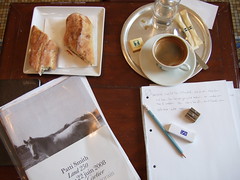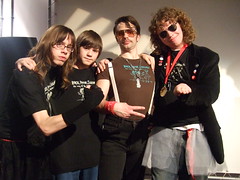[As ever, you can read this on the BBC News website. And thanks to my City students for the inspiration!]
I’ve just finished marking the essays my students at City University have to do as part of the course in online journalism that I teach. They’ve done some good work, especially the assignment where I get them to argue that the BBC should be forced to close down its online service because the license fee is really only there to pay for television.
They also seem to have realised that anyone who wants to break into professional journalism needs to have some sort of online presence beyond a Facebook profile, as it’s the first thing an editor will look for when they apply for a job, so there are a few new blogs and online publications out there that might not otherwise have appeared.




